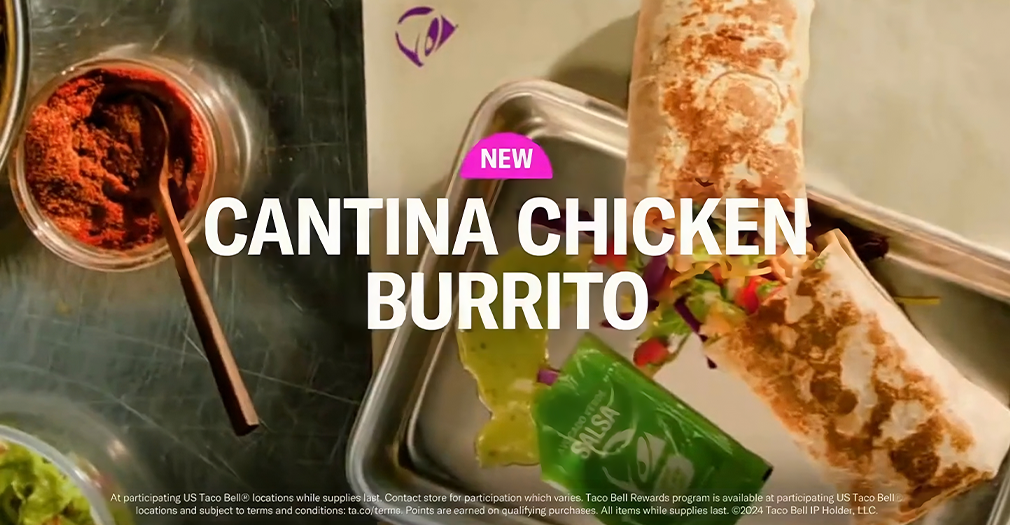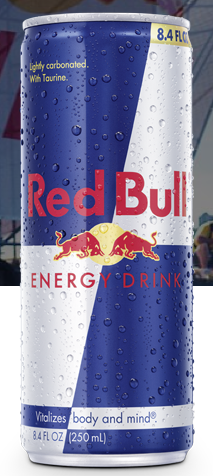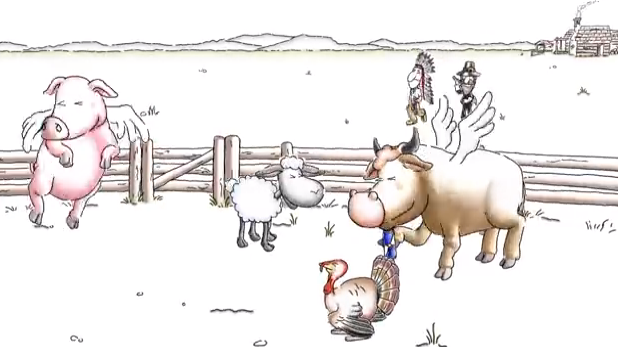
Taco Bell’s New Cantina Chicken Menu Fail
What you see may NOT be what you get.
This proposed agreement is not as absurd as media coverage may have led you to believe.
| Fran Silverman
Here at TINA.org we keep a very close eye on class-action lawsuits filed against companies that allege false and deceptive advertising. We keep even a closer eye on the settlements we think aren’t of much benefit to consumers. And when a settlement garners a lot of media attention, we also take notice. But I must say, I was a little befuddled by the media coverage of the $13 million proposed Red Bull Energy Drink settlement.
The settlement stemmed from class-action suits (one filed in California and one in New York) against the company that alleged that Red Bull, the number one selling energy drink in the U.S., falsely marketed its drinks as superior to other cheaper caffeine-only products and having specific qualities without credible and reliable scientific evidence to support the claims.
What was the superior nature of Red Bull’s qualities? Here’s where some in the media ran a little wild. The California suit (which was consolidated with the New York suit for the settlement) pointed to Red Bull’s website which said scientific studies proved the drink:
In short said the company: “Red Bull gives wings to people who want to be mentally and physically active and have a zest for life.”
In July, the company agreed to a proposed settlement allowing all consumers who made at least one purchase of Red Bull products in the United States between January 1, 2002 and October 3, 2014 to receive $10 in cash or $15 worth of Red Bull products.
The media seized on the “wings” aspect of Red Bull’s advertising, pushing it in headlines. Like a bad game of telephone, some members of the media even reported in their stories that consumers who thought they’d get wings from imbibing the drink could now get cash refunds.
Said a Time Inc. report:
Yesterday, the world received some truly wonderful news: A group of Red Bull customers took the company’s “It Gives You Wings” slogan a little too literally, sued the drink maker for false advertising, and forced Red Bull to give us all money.
MTV.com wrote:
Ever open up a can of Red Bull and wait for the budding sensation of wings sprouting out your back? No? Well, apparently, some consumers took the hyperbolic ad campaign that the company has employed for years a little too seriously. “Red Bull gives you wings” has been their slogan for a long time, but this new lawsuit will definitely put that campaign to bed.
As part of a class-action lawsuit settlement, the energy-drink maker agreed to pay anyone that bought its product in the last 12 years $10 or $15 worth of their products as reparations for the fact that no one drinking a Bull received the ability to take flight.
Maybe some in the media were trying to tag absurd class actions and were using the Red Bull settlement as an example. (I mean, does any journalist really think a consumer would actually expect a product to help them grow wings or that a lawsuit claiming a consumer thought that would even get to a settlement stage? If so, that’s a bigger problem.)
There are indeed some absurd class-actions suits and settlements (i.e. this preliminary August settlement in a California case against Jimmy John’s, which alleges the restaurant falsely advertised sandwiches as containing sprouts when the sandwiches actually did not have sprouts. What will consumers get as part of the settlement? A $1.40 voucher for any side item, such as a pickle, a cookie, or potato chips, or soda at a Jimmy John’s restaurants. The irony, of course, is that consumers wanted the healthy sprouts and when they didn’t get it in the advertised sandwich, they got a coupon to purchase junk food such as a cookies, chips or soda.) OK, I digress. The point is there are absurd class actions. But Red Bull’s wasn’t one of them.
 The class actions against Red Bull point to studies that show caffeine is the basis for the increase in physical and mental energy and not the “unique combination of high quality ingredients” for which Red Bull charges a premium price ($2.19 for a can as opposed to 30 cents for a tablet of NoDoz). The New York suit also alleged Red Bull charged a significant price for the products that some reports say “pose serious undisclosed health risks.”
The class actions against Red Bull point to studies that show caffeine is the basis for the increase in physical and mental energy and not the “unique combination of high quality ingredients” for which Red Bull charges a premium price ($2.19 for a can as opposed to 30 cents for a tablet of NoDoz). The New York suit also alleged Red Bull charged a significant price for the products that some reports say “pose serious undisclosed health risks.”
It’s not absurd for consumers to expect that that the company bases its claims that its drinks could make them feel more energetic and could help them increase their performance on scientifically valid studies. That is a basic tenant of consumer protection law, that a company better be able to prove what it says and the FTC has stepped up its enforcement of this very issue. It’s also a basic right that consumers know what they are paying for and that if they purchase a product under false pretenses because of misleading marketing, they should be reimbursed. (See TINA.org’s objection to proposed vitaminwater settlement.)
Red Bull said it had agreed to the proposed $13 million settlement to avoid costly and distracting litigation and that it already voluntarily withdrew or revised the claims in question. But in the settlement it also agreed “to confirm that all future claims about the functional benefits from consuming its products will be medically and/or scientifically supported.”
That’s a win for consumers.
The company also said it intends to keep using its trademarked “Gives You Wings” slogan. So if that bothers you, you’ll need to write to the court by April 1 to object to the settlement terms. (Call 877-495-1568 for more information on how to object.) A final hearing on the settlement is schedule for May.
But there doesn’t seem to be an outpouring of objections. In fact, so many consumers tried to sign up for refunds when the media was whipping the wings aspect around the Internet that the settlement site crashed. Maybe its because you don’t need to show any receipts to get the $10 or $15 in coupons or that so many people felt misled that they jumped at the chance for a refund. Either way, the settlement site is back up now.
I hope consumers who did feel they were deceived put in for refunds. Because this settlement is most definitely not about the wings. It’s about Red Bull winging on its scientific studies.
This blog was updated on 10/30/2014.
What you see may NOT be what you get.
A reminder to be careful about ad claims that may seem too good to be true.
TINA.org comment showcases the ongoing need for an FTC rule.


